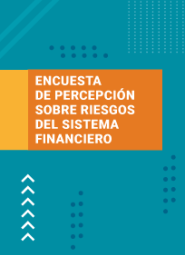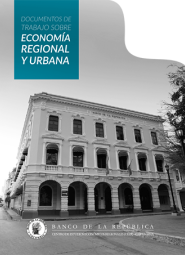Designing an Expert Knowledge-based Systemic Importance Index for Financial Institutions
La serie Borradores de Economía es una publicación de la Subgerencia de Estudios Económicos del Banco de la República. Los trabajos son de carácter provisional, las opiniones y posibles errores son responsabilidad exclusiva del autor y sus contenidos no comprometen al Banco de la República ni a su Junta Directiva.
Defining whether a financial institution is systemically important (or not) is challenging due to (i) the inevitability of combining complex importance criteria such as institutions’ size, connectedness and substitutability; (ii) the ambiguity of what an appropriate threshold for those criteria may be; and (iii) the involvement of expert knowledge as a key input for combining those criteria.
The proposed method, a Fuzzy Logic Inference System, uses four key systemic importance indicators that capture institutions’ size, connectedness and substitutability, and a convenient deconstruction of expert knowledge to obtain a Systemic Importance Index.
This method allows for combining dissimilar concepts in a non-linear, consistent and intuitive manner, whilst considering them as continuous –non binary- functions. Results reveal that the method imitates the way experts them-selves think about the decision process regarding what a systemically important financial institution is within the financial system under analysis.
The Index is a comprehensive relative assessment of each financial institution’s systemic importance. It may serve financial authorities as a quantitative tool for focusing their attention and resources where the severity resulting from an institution failing or near-failing is estimated to be the greatest. It may also serve for enhanced policy-making (e.g. prudential regulation, oversight and supervision) and decisionmaking (e.g. resolving, restructuring or providing emergency liquidity).



















































